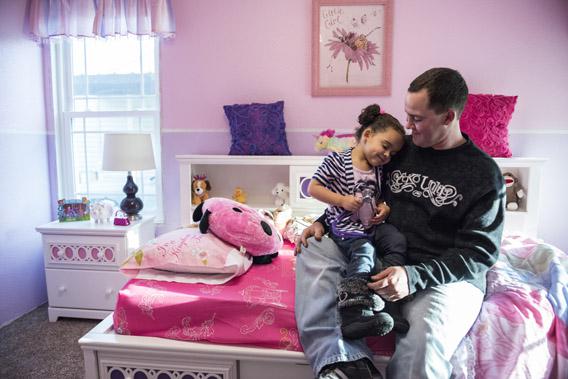Yesterday the Supreme Court decided Adoptive Couple v. Baby Girl and although it is not clear whether it will result in a “win” for the Adoptive Couple, Matt and Melanie Capobianco, there is no question it is a win for adoptive couples in general.
Baby Girl involves an Indian child, Veronica Capobianco, who was placed for adoption with the Capobianco’s at birth. Her biological father, Dusten Brown, never agreed to the adoption—he says he gave up his parental rights without knowing that the child’s biological mother was going to give her up for adoption. Upon receiving notice of the pending adoption, Brown immediately contested it. Brown is an enrolled member of the Cherokee tribe of Oklahoma and he argued that the termination of his parental rights was invalid under a federal statute known as the Indian Child Welfare Act, which aims to strengthen and protect Indian families by preventing their unnecessary break up.
One of the ways ICWA protects Indian families is by forbidding the involuntary termination of Indian parents’ parental rights. Under the statute, such terminations are forbidden in the absence of a heightened showing that serious harm is likely to result from the parent’s “continued custody” of the child. Brown based his argument on this statutory provision and won in South Carolina. After two years of living with the Capobiancos, Veronica was turned over to her biological father. But now, in a 5–4 decision, the Supreme Court has said that the South Carolina courts were wrong.
The court based its ruling on a very literal meaning of “continued” (they even cited the dictionary) and found it only applied in instances where the objecting parent had previously exercised physical or legal custody of the child. In this case, because Veronica was placed with the Capobiancos at birth, the court found this provision did not apply to Brown and thus, the court found that Brown’s parental rights could be involuntarily terminated. However, since the lower court believed it did not have this power, it never terminated his parental rights. As a result, the case will now be remanded back to the South Carolina family court.
Although the family court now has the authority to terminate Brown’s rights, there is good reason to think they won’t. Veronica has been in the care of her biological father for almost two years. He is her father, he loves her, and he wants to raise her. Hopefully, these facts will matter to the family court, but it is pretty clear they meant very little to the majority.
According to the majority opinion, written by Justice Alito, the five justices’ biggest concern with ICWA and the provision that prevents the involuntary termination of Indian parents’ rights is that it might “dissuade” potential adoptive parents from seeking to adopt Indian children. Well duh, that’s the point!
ICWA was passed to make the adoption of Indian children harder and that is precisely what the majority is objecting to. As Justice Sotomayor states in her dissent, “the majority openly professes its aversion to Congress’s explicitly stated purpose in enacting the statute.” Instead of protecting Indian parents, the majority opinion is an ode to the virtues of adoption. In fact, the majority likes adoption so much they suggest that instead of seeking to prevent the termination of his parental rights Brown should have tried to adopt Veronica!
The above statement is made in the context of a separate section of ICWA, section 1915(a), which delineates preferences for Indian children placed for adoption. According to this section, extended family members should be given top priority when an Indian child is placed for adoption. In his briefs, Brown relied on this section to argue that even without ICWA’s prohibition on involuntary terminations, his status as Veronica’s biological relative gave him preference over the Capobiancos in any adoptive placement. The court however, disagreed.
The majority held that “[b]iological father is not covered by [this section] because he did not seek to adopt Baby Girl.” According to the court, if Brown had truly wanted to be considered a potential parent to Veronica he should have done so as an adoptive parent rather than a biological one. So a biological parent is not preferable to a potential adoptive parent and in fact, it is only by seeking to adopt that the biological parent becomes worthy of custodial consideration? This is a shocking statement and one that, as Scalia notes in his dissent, “needlessly demeans the rights of parenthood.”
This disagreement over the importance of biology is at the heart of the Baby Girl case and it is why this case should matter to more than just Indian families and their advocates. For the majority, biology is insignificant, but as Scalia notes, “it has been the constant practice of common law to respect the entitlement of those who bring a child into the world to raise that child.” More importantly, this recognition of parental rights is not arbitrary. It is a recognition that biology matters. As Justice Sotomayor wrote, “the biological bond between a parent and child is meaningful.” I have no doubt that the Capobiancos also have a deeply meaningful bond with Veronica, and I cannot imagine their pain since losing her last year. But Dusten Brown is Veronica’s biological father, he loves her and wants to raise her. This should matter.
